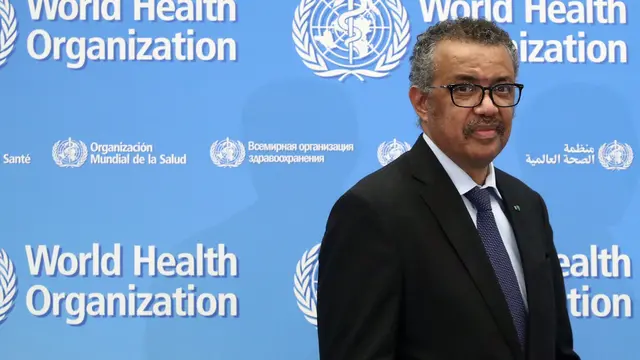The World Health Organization (WHO) urged governments to offer a "fraction" of funds from trillions of dollars of stimulus packages, rolled out for re-opening the economy, for its global research initiative set up to find treatment and vaccines for the novel coronavirus.
The WHO believes a centralized effort through its ACT-Accelerator, launched in April to develop affordable and equitable solutions, could help effectively tackle the virus. While governments have committed a total of 3.4 billion U.S. dollars, there is still a funding gap is 27.9 billion U.S. dollars.
"It's easy to think of the ACT-Accelerator as a research and development effort; but in reality, it's the best economic stimulus the world can invest," Tedros Ghebreyesus, WHO director-general, told a press briefing on Thursday.
"The first and most immediate need is 31.3 billion U.S. dollars, for the ACT-Accelerator," he added.
With the lockdowns costing 75 billion U.S. dollars a month, governments are rushing to re-open the economy, pumping trillions of dollars to boost demand. Japan, Canada and the U.S have announced stimulus packages amounting to 21 percent, 15 percent and 13 percent of their Gross Domestic Product (GDP), respectively.
The International Monetary Fund (IMF) estimates that the world could witness a total loss of 12 trillion U.S. dollars has further added to the pressure of re-opening the economy.
Among the highest spenders are G20 countries that have mobilized more than 10 trillion U.S. dollars in fiscal stimulus to treat and mitigate the pandemic's consequences.
"Funding the ACT-Accelerator will cost a tiny fraction in comparison to the alternative where economies retract further and require continued fiscal stimulus packages," said Tedros.
Within three months of the launch, the accelerator has managed to develop a few groundbreaking tools. Researchers are already testing nine vaccine candidates which are in various stages of phase two and three trials.
One of the pathbreaking findings was coming up with an affordable therapy using Dexamethasone for treating the infection. The accelerator is also experimenting with more than 50 tests for detecting the virus.
"When a successful new vaccine is found, there will be greater demand than there is supply. Excess demand and competition for supply are already creating vaccine nationalism and risk of price gouging, said Tedros.
(Cover: Director-General of the WHO Tedros Adhanom Ghebreyesus attends a news conference on the coronavirus (COVID-2019) in Geneva, Switzerland on February 24, 2020. /Reuters)
(CGTN)
 简体中文
简体中文

